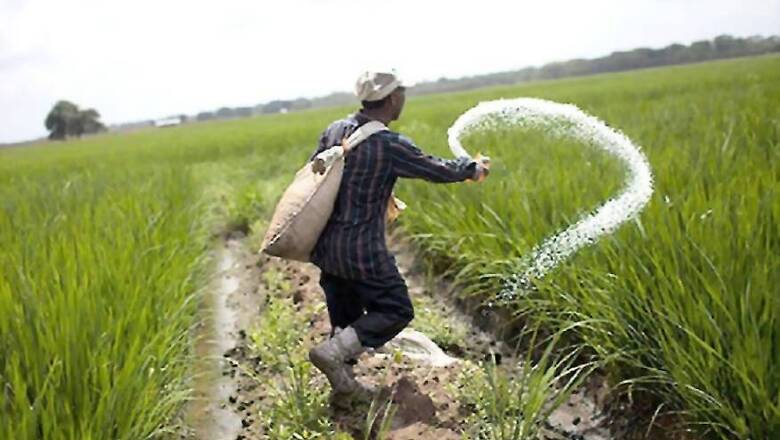
views
New Delhi: In a move that may hurt farmers, the Ministry of Commerce and Industry has imposed Rs 60,376 per tonne Minimum Export Price (MEP) on onion shipments – an attempt to stabilise local prices ahead of key state elections.
“Export of all varieties of onions, as described above, will be allowed only on Letter of Credit subject to the MEP of $850 FOB per tonne till further orders,” read the notification issued by the Directorate General of Foreign Trade.
This moves comes at a time when onion prices have sky rocketed across the country. According to sources, the wholesale prices in India’s largest onion trading hub, Lasalgaon in Maharashtra, have increased two fold to Rs 29,500 per tonne, in one month. The current market price on onion stands between Rs 40-50 per kilogram.
Experts have noted that the fall in the supply of onions from Madhya Pradesh and Karnataka caused the rise in price. However, they also stated that the imposition of the MEP is a move to curb the food inflation ahead of state elections in Haryana and Jharkhand elections.
Devinder Sharma, a noted food and trade policy analyst, told News18 that the Centre’s decision to impose MEP on onion – keeping the consumer in mind – is not a healthy step for the farmer.
“Why is it that the government is more concerned about the consumer than the farmer? It is because our economic design as a country is based on the premise that higher the farmer income, more the negative impact on economic reforms. Farm prices are being deliberately being kept low,” he said.
What Sharma essentially is pointing towards is a scenario where India is importing onions, when fresh Kharif produce is due to arrive in a few weeks, while simultaneously imposing Rs 60, 376 per tonne MEP on exports.
Imports will flood the markets, killing the prices realised by farmers and at the same time, the MEP will not allow farmers to export. This will hurt the farmer badly, said Ramandeep Singh, a farmer rights activist.
Indeed, India’s higher export price on onions — a base ingredient for traditional dishes across Asia — will help China, Egypt and Pakistan export more to buyers like Bangladesh, Malaysia, the UAE and Sri Lanka.
According to Sharma, the logic of higher export price is to avoid a scarcity position. “The government is trying to avoid the case wherein the cheap import itself is exported out. If we keep importing, while simultaneously exporting, it doesn’t make sense. What this MEP does essentially is debar traders from exporting onions,” he said.
Earlier in June, after prices started to rise due to falling supplies, the Centre withdrew 10 per cent export incentives on onions.

















Comments
0 comment